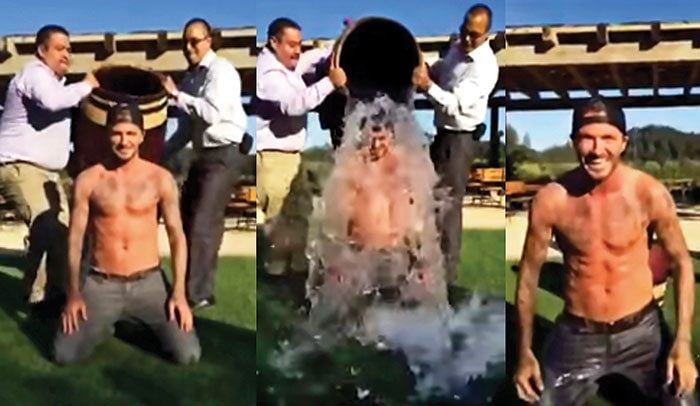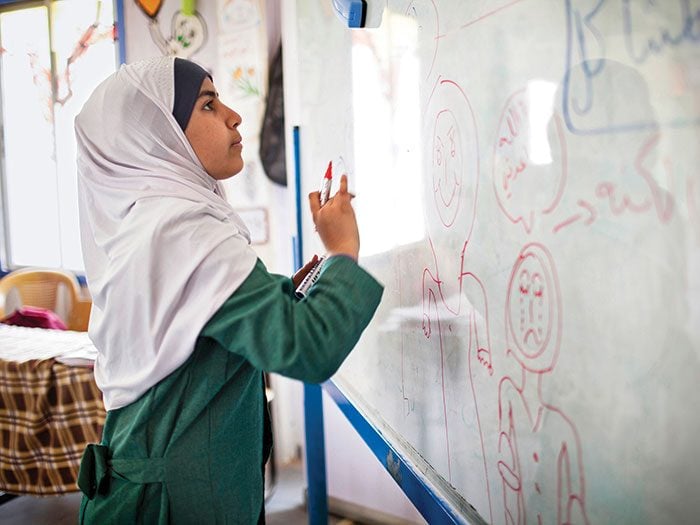Good News
Some of the positive stories coming our way

Water stunt aids disease research
Medicine In the summer of 2014, the craze of nominating friends to get a freezing cold soaking in the so-called Ice Bucket Challenge swept the world. Celebrities such as David Beckham (pictured) took part. The idea was to promote awareness of Motor Neurone Disease (MND) and encourage donations for research into the condition, which attacks the nerves in the brain and spinal cord.
At the time, some dismissed the Challenge as just a stunt, yet it raised more than $100m, and now a research project in the Netherlands funded by the campaign has identified a new gene associated with the disease that could lead to new treatment possibilities.
Dutch entrepreneur Bernard Muller, who suffers from MND, founded the project with the aim of unravelling the genetic basis of the disease. He thinks the Ice Bucket Challenge campaign was crucial.
“The funding has helped us with research, but it has also had a profound effect on awareness,” he says. “I’m incredibly pleased with the discovery of the gene adding another step towards our ultimate goal of eradicating this disease.”
Dutch prisons are closing
Crime The Netherlands has a population of 17 million people but only 11,600 of them are in jail-a tiny proportion compared with most other countries. Prison numbers have been falling since 2004 and, as
a result, the country’s prisons have been closing: eight in 2009, another 19 in 2014, and now another five are set to follow.
According to Ard van der Steur, Dutch minister of security and justice, the reasons behind the phenomenon are twofold: shorter sentences and a decline in serious crimes.
But what to do with the empty prisons? The Netherlands has begun “leasing” them as prisons to other countries, such as Belgium and Norway. One former prison in the Dutch town of Roermond has even been turned into a hotel.
Locking up greenhouse gas
Environment Scientists in Iceland have found a way to turn carbon dioxide into salt-like crystals in a project dubbed “Carbfix”. At the Hellisheidi geothermal plant, researchers dissolve the gas in water before injecting it into basalt rock, which chemically reacts with it to create a mineral in a matter of months. The process could become an important addition to methods of reducing greenhouse gases.

Fighting early marriage When 11-year-old Syrian Omaima arrived in Jordan’s sprawling Za’atari refugee camp in 2012, she began to find that new friends of her own age were disappearing-to arranged marriages. Although the practice is not common in Syria, it has become more widespread in the camps as some families seek to ease their financial responsibilities by marrying off their daughters.
Omaima now does all she can to stop the same fate befalling other girls, encouraging classmates to share information on the practice with their parents and working as a volunteer with a child protection group. She says she hopes to get married herself one day. “But only on my terms, after I’ve finished my education and been to university.”
Sources: Medicine: The Guardian, 27 July 2016. Crime: Daily Telegraph, 22 March 2016. Environment: National Geographic, 9 June 2016. Heroes: UNHCR Tracks, 12 April 2016



